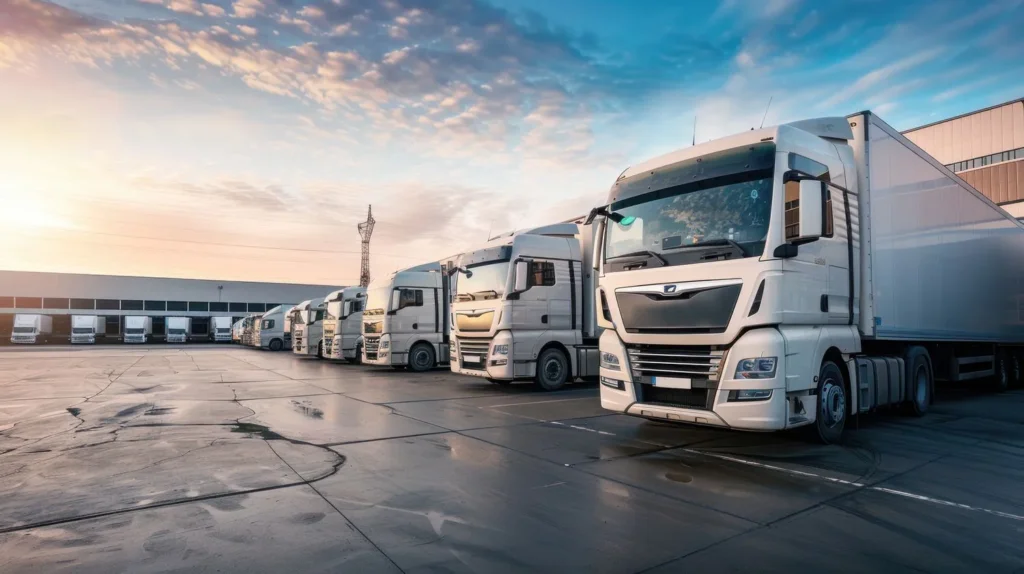IRU’s Green Compact survey assessed the decarbonisation status and investment plans of operators in Australia, Central Asia, Europe, Mexico and Türkiye. Reflecting the dominance of smaller players in the sector, 86% of respondents were small and medium-sized enterprises (SMEs).

Chart by IRU
According to the report, more than 70% of operators expressed concerns about decarbonisation, a figure rising above 80% in Europe. Despite this, over half of respondents said they intended to invest in alternative fuels within the next five years, with biofuels emerging as the leading option and electric vehicles ranking second.
Rising costs and customer resistance block transition
The survey found that vehicle and energy costs remain the single biggest challenge. Many operators also reported reluctance from clients to absorb higher transport prices associated with low-carbon fleets. For instance, 67% of respondents in Australia and 58% in Europe said customers were unwilling to share additional costs.

Chart by IRU
Infrastructure deficits compound these financial pressures. In Türkiye, 70% of operators reported difficulties in installing depot chargers, while half of Central Asian companies cited challenges in procuring alternatively fuelled trucks. In Europe, 60% of respondents pointed to the lack of public recharging facilities as a major constraint.
In case you missed it: Need EV chargers at your depot? Don’t miss this £1 million EV charging grant
As a result, conventional diesel is set to remain dominant in the medium term. According to IRU, 90% of operators still plan to purchase new diesel vehicles in the future.
SMEs squeezed between policy targets and market realities
IRU Secretary General Umberto de Pretto argued that the findings expose a structural disconnect between policy ambitions and operational realities.
“The road transport industry is committed to carbon neutrality, but this new landmark survey shows that most operators are struggling to reconcile regulatory and market expectations with high up-front costs and a lack of infrastructure,” he said.
He warned that without tackling these obstacles, millions of SMEs, which make up 85% of the sector worldwide, could find alternatively fuelled vehicles unaffordable.
“If we don’t remove cost and infrastructure barriers in particular, alternatively fuelled vehicles will be almost impossible to buy and operate for many companies, putting at risk our global net-zero commitments,” he added.
IRU calls for incentives and regulatory clarity
The survey highlights not only financial and infrastructure barriers but also the absence of what IRU describes as “enabling conditions”. These include regulatory clarity, support schemes, and the technical feasibility of integrating new fuels into logistics networks.
“This report demonstrates something that we have been saying for a long time: without the right enabling conditions, millions of road transport operators around the world will not be able to buy or run alternatively fuelled vehicles,” de Pretto said.
He called on governments to accelerate investment incentives, reduce risk, and expand infrastructure to ensure operators can make viable long-term decisions.
Efficiency measures and passenger transport also under review
The Green Compact survey also examined wider efficiency measures such as driver training, vehicle technologies, and logistics optimisation, as well as trends in passenger transport. The full 90-page report includes regional breakdowns, assessments of current regulatory approaches, and an outline of the conditions deemed necessary for meaningful decarbonisation in the road transport sector.
Read more:
- Scania confirms cyberattack following data breach on external platform
- Nikola puts 103 hydrogen trucks and fuelling assets up for sale following bankruptcy
- Haulier and entire fleet disappeared. Belgian transport in the shadow of a wave of bankruptcies
- E-truck maker Windrose faces cash crunch allegations, CEO insists finances intact





